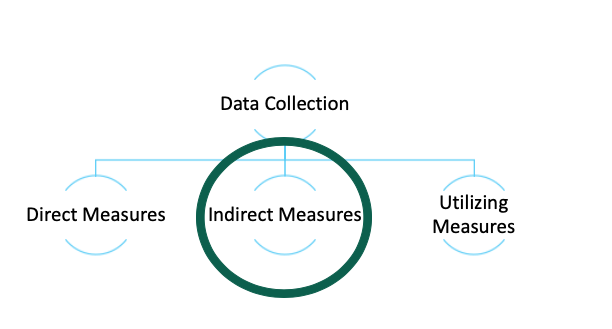
Indirect measures are another important form of measurement for an academic program, though it should not be the sole form of measuring Student Learning Outcomes.
Indirect measures evaluate a student’s knowledge of and performance on Student Learning Outcomes indirectly.
Examples of indirect measures include (but are not limited to): self-evaluation surveys of student’s ability to perform on a particular Student Learning Outcome, focus groups, and exit interviews. Performance on these measures in relation to the Student Learning Outcome should utilize the same data collection instrument and process for all students in a sample.
One example of an indirect measure that is often conflated as a direct measure is a student's grade in a particular class. There are many elements (for example, attendance) that make up a student's grade that do not directly assess their learning of the material related to a Student Learning Outcome, so an overall grade is not appropriate.
Indirect measures are a wonderful supplement to direct measures for a Student Learning Outcome however, indirect measures should not replace direct measures.
